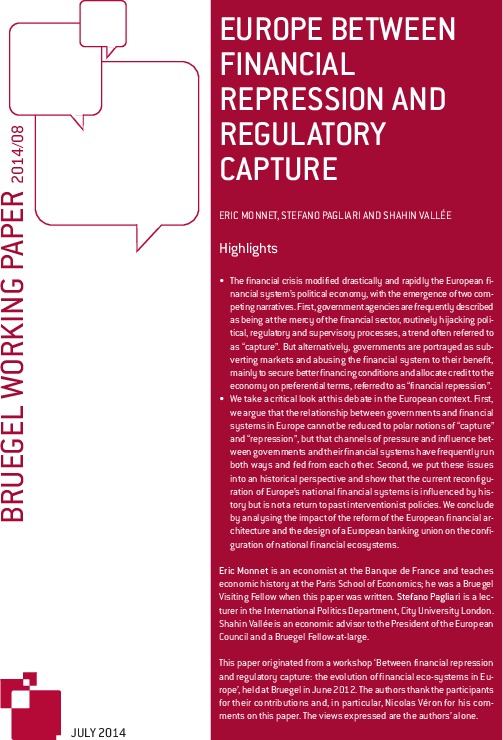External authors

Éric Monnet
Éric Monnet is a macroeconomist specialized in the history of central banks and financial systems. Eric obtained his Phd from the Paris School of Economics and has held visiting positions at Columbia University and Rutgers University.
He is currently a Post-doctoral fellow in monetary economics at Ghent University and a visiting fellow at Bruegel.
Eric is also part of the editorial committee of La Vie des Idées and Tracés.


